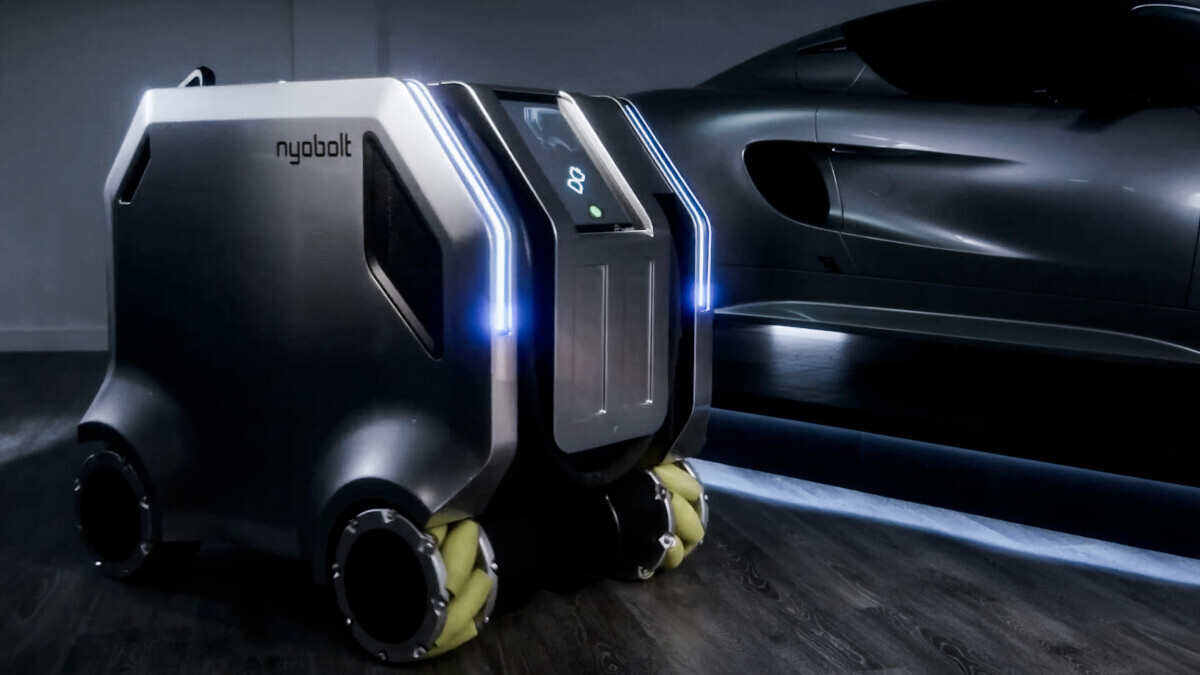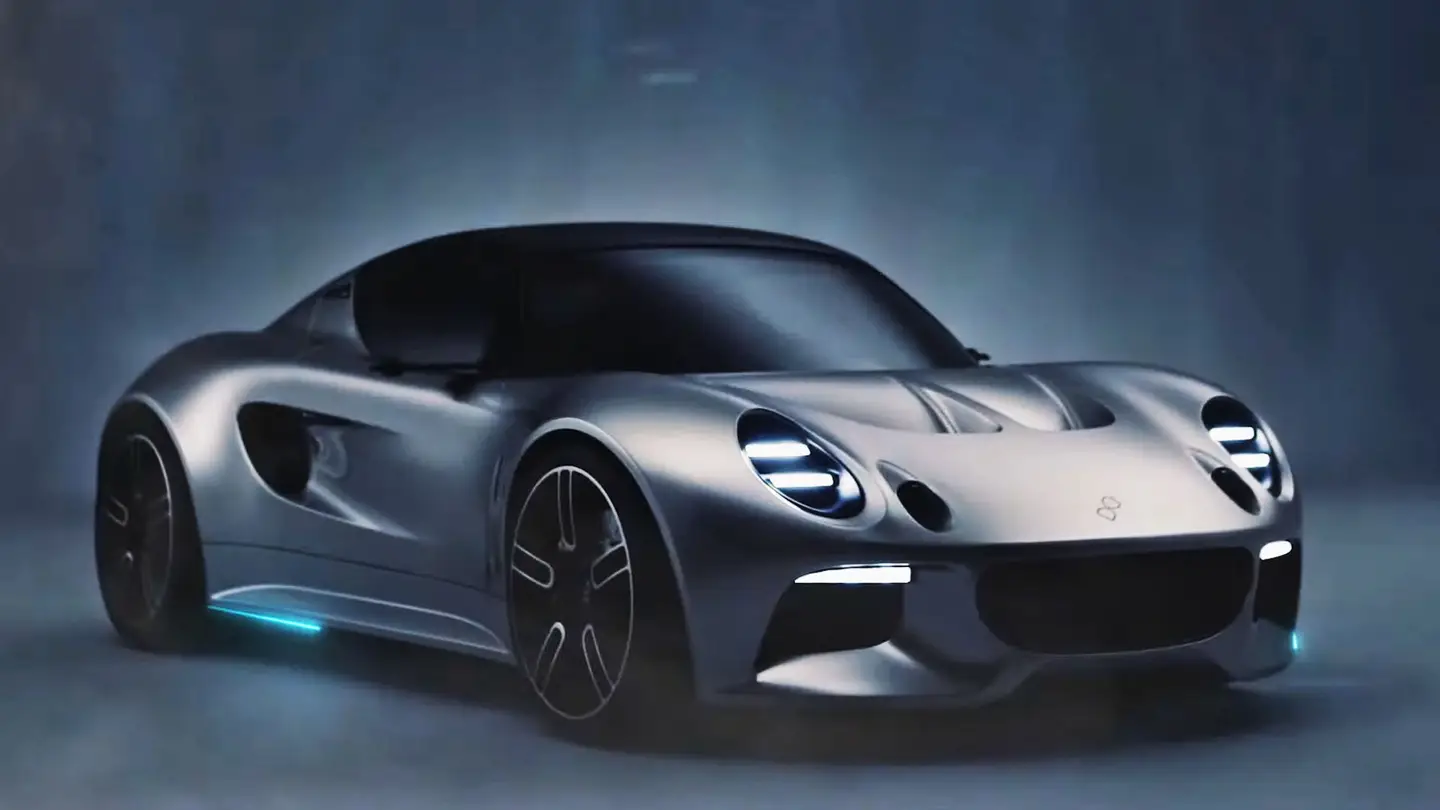
For UK battery startup NyoBolt, six seems to be the magic number. First, in June it showcased an EV that could be fully charged in just six minutes (a claimed record). And today it unveiled a new kind of supercharger that can also be recharged in — you guessed it — six minutes.
Dubbed Bolt-ee, it essentially looks like a four-wheeled metal box with an interactive touchscreen for a face. Unlike fixed charging stations, this fast-charging, direct current, 300kW device is fully mobile.
“Bolt-ee can reach a parked vehicle in any bay, delivering up to 100 miles of range in under 10 minutes, with a battery life of over 10,000 charging cycles,” the company told TNW.
Bolt-ee was designed to solve one of the biggest barriers preventing the widespread adoption of electric cars — a lack of charging infrastructure.
Globally, 14% of all new cars in 2022 sold were electric, up from 9% in 2021. In Europe, that figure is higher, at 22%.
However, the booming demand for EVs risks outpacing the supply of the technology needed to charge them. In 2021, the EU had an estimated 375,000 public charging stations, but experts predict it will need to build at least 3 million new ones by 2030.
Obstacles such as planning permission, lengthy construction works, and connection to the grid have all delayed progress.
The Bolt-ee looks to sidestep these hurdles. It acts like a massive power bank — but for your car. Aside from being used in homes, car parks, and gas stations, the startup says the mobile charger could also be placed aboard recovery vehicles to help drivers stranded on the side of the road because they’re out of juice.
“NyoBolt’s ready-to-deploy technology, which will go into production in early 2024, will help accelerate the adoption of EVs — particularly for drivers who may not be able to charge at home,” said the company’s chief scientist and co-founder Professor Clare Grey.

Founded in 2020, NyoBolt has already secured almost $100mn in funding, according to Dealroom data. It operates an anode-manufacturing facility in Cambridge, UK, and recently opened a new battery factory in Boston, US.
Back in June, the startup unveiled an electric sports car concept based on the Lotus Elise that could be fully recharged in less than six minutes. The car was fitted with a lightweight battery pack developed by NyoBolt that provides a claimed range of about 250km on a single charge.
NyoBolt’s VP of engineering Steve Hutchins said his team have charged and discharged their battery at this incredibly fast rate over 2500 times with a total degradation in the battery’s ability to hold electricity of less than 15%.
How is that possible you may be wondering? Basically, it comes down to tinkering with lithium-ion batteries to accept more electrical charge in a smaller amount of time.
“To put a lot of power in, you need to get a lot of current through it. To get a lot of current through, a lot of charge needs to flow in and out of the materials,” explained Nyobolt co-founder and CEO Sai Shivareddy.
Essentially, NyoBolt has invented a new type of material to accept that level of power — but is remaining hush-hush on the details.
In an industry where range anxiety and slow charging times still remain a significant hurdle, a battery with a six-minute charging time could be a game-changer. Whether these battery packs could be scaled up to millions of units however remains to be seen.
Get the TNW newsletter
Get the most important tech news in your inbox each week.




